| Coach | NA |
| Venue | Estadio Pablo Comelli |
Talleres Remedios predictions
Predictions for Talleres Remedios: See upcoming and historic predictions for Talleres Remedios below.
Disclaimer: Past performance does not guarantee future results. Betting involves risk; only wager what you can afford to lose. Always gamble responsibly.
Talleres Remedios latest results
| 12/04 | - | ||
| 07/04 | 1 - 5 | ||
| 21/03 | 0 - 0 | ||
| 17/03 | 2 - 1 | ||
| 03/03 | 0 - 1 |
Primera Nacional standings
| Rank | Team | MP | W | D | L | GF | GA | GD | Pts |
|---|---|---|---|---|---|---|---|---|---|
| 1 |
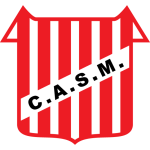 San Martin Tucuman
San Martin Tucuman
|
10 | 6 | 1 | 3 | 13 | 5 | 8 | 19 |
| 2 |
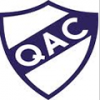 Quilmes
Quilmes
|
9 | 5 | 4 | 0 | 10 | 2 | 8 | 16 |
| 3 |
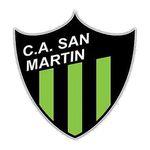 San Martin S.J.
San Martin S.J.
|
10 | 4 | 4 | 2 | 10 | 9 | 1 | 16 |
| 4 |
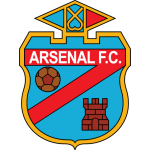 Arsenal Sarandi
Arsenal Sarandi
|
10 | 4 | 3 | 3 | 10 | 9 | 1 | 15 |
| 5 |
 All Boys
All Boys
|
9 | 3 | 5 | 1 | 7 | 5 | 2 | 14 |
| 6 |
 Agropecuario
Agropecuario
|
9 | 3 | 4 | 2 | 12 | 10 | 2 | 13 |
| 7 |
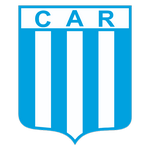 Racing Cordoba
Racing Cordoba
|
9 | 3 | 4 | 2 | 8 | 7 | 1 | 13 |
| 8 |
 Alvarado
Alvarado
|
9 | 3 | 4 | 2 | 8 | 7 | 1 | 13 |
| 9 |
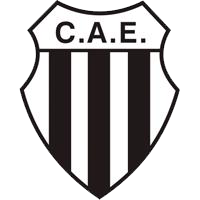 CA Estudiantes
CA Estudiantes
|
9 | 3 | 4 | 2 | 5 | 5 | 0 | 13 |
| 10 |
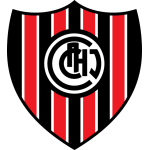 Chacarita Juniors
Chacarita Juniors
|
10 | 3 | 3 | 4 | 9 | 11 | -2 | 12 |
| 11 |
 San Miguel
San Miguel
|
9 | 1 | 7 | 1 | 5 | 5 | 0 | 10 |
| 12 |
 Tristan Suarez
Tristan Suarez
|
9 | 2 | 4 | 3 | 10 | 11 | -1 | 10 |
| 13 |
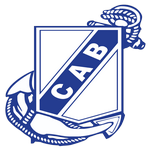 Guillermo Brown
Guillermo Brown
|
9 | 2 | 4 | 3 | 8 | 9 | -1 | 10 |
| 14 |
 Talleres Remedios
Talleres Remedios
|
9 | 2 | 4 | 3 | 6 | 7 | -1 | 10 |
| 15 |
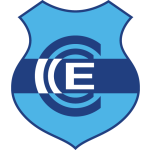 Gimnasia Jujuy
Gimnasia Jujuy
|
9 | 3 | 1 | 5 | 7 | 9 | -2 | 10 |
| 16 |
 Ferro Carril Oeste
Ferro Carril Oeste
|
10 | 2 | 4 | 4 | 12 | 15 | -3 | 10 |
| 17 |
 Patronato
Patronato
|
10 | 2 | 4 | 4 | 6 | 12 | -6 | 10 |
| 18 |
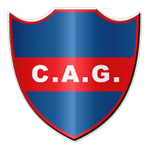 Club Atlético Güemes
Club Atlético Güemes
|
9 | 1 | 6 | 2 | 5 | 6 | -1 | 9 |
| 19 |
 Deportivo Maipu
Deportivo Maipu
|
9 | 2 | 1 | 6 | 7 | 15 | -8 | 7 |
About Talleres Remedios
Club Atlético Talleres, commonly referred to as Talleres Remedios, is an Argentine sports club based in the Remedios de Escalada district of Lanús Partido, Buenos Aires. Founded on June 1, 1906, Talleres is one of the oldest and most traditional clubs in the Argentine football scene. The club's colors are red and white, and it is known for its passionate fan base.
The origins of Talleres can be traced back to a group of railway workers from the British-owned Buenos Aires Great Southern Railway who decided to establish a club where they could practice sports, especially football. The name "Talleres" means "workshops" in Spanish, reflecting the club's working-class roots and the profession of its founders.
Throughout its history, Talleres has experienced both highs and lows. The club has spent most of its existence in the lower divisions of Argentine football but has also had stints in the top flight, known as the Primera División. Talleres has a reputation for being a resilient club, often bouncing back from difficult periods with the support of its dedicated fan base.
Talleres Remedios has played its home games at the Estadio Talleres, also known as the Estadio Timoteo Aparicio, which has a capacity of approximately 5,000 spectators. The stadium is named after one of the club's most influential presidents and is a symbol of the club's community roots and local pride.
One of the most notable achievements in the club's history was its participation in the Primera División during the 1983 season. Although the stay in the top tier was short-lived, it marked a significant milestone for the club and its supporters. Additionally, Talleres has had success in regional tournaments and has been a competitive force in the lower divisions, often vying for promotion and showcasing promising talent.
Talleres Remedios is also recognized for its youth academy, which has produced several players who have gone on to have successful careers in Argentina and abroad. The club's commitment to developing young talent is a cornerstone of its philosophy, and it continues to invest in its youth system to ensure the future growth and sustainability of the team.
Off the pitch, Talleres is deeply embedded in the local community, with social and cultural activities that extend beyond football. The club's social work includes educational programs, community outreach, and various events that bring together residents of Remedios de Escalada and the surrounding areas.
In recent years, Talleres has faced the challenges of modern football, including financial pressures and the need to modernize its facilities. Despite these obstacles, the club remains a beloved institution in Argentine football, with a loyal following that cherishes its rich history and looks forward to a bright future.
As of the early 2020s, Talleres Remedios continues to compete in the lower divisions of Argentine football, striving for promotion and the chance to once again play against the country's top teams. The club's spirit, grounded in its working-class origins and community values, remains a beacon of hope and pride for its supporters.















